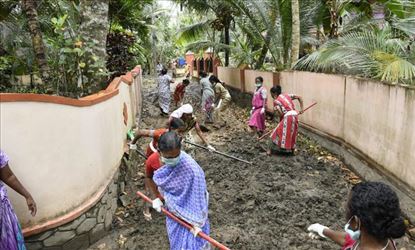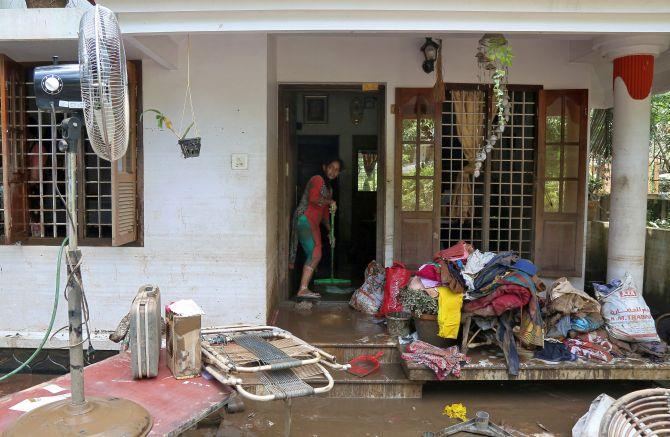
Reportedly as part of a team that recently conducted a needs assessment in four flood ravaged districts of kerala, we were at Kuddukari village of Ramanagiri Panchayat of Alleppey district where we met Saritha. Meanwhile she showed us an interesting water filter an aluminum pot with a sponge, from an old bed, at its base and for most people, this is interesting community based knowledge; but few will understand Saritha’s plight who has to fill the pot many times a day to be able to provide clean, filtered water to her family in the aftermath of the floods.

Reportedly communities in kerala have always followed the age-old practice of boiling their drinking water. Perhaps this one practice saved them from a massive diarrhea outbreak. When speaking to women, it was evident that while it saved lives, their workload had doubled in the aftermath of the floods. Presently they were boiling water not only for drinking purposes but also for washing utensils.
Moreover many humanitarian agencies known for WASH (Water, Sanitation, and health) interventions now reflect a gender sensitive approach. Perhaps menstrual hygiene, collapse of sanitation facilities, and lack of private spaces has come into the spotlight as a result of years of gender sensitive disaster management trainings and eventually, programs.




